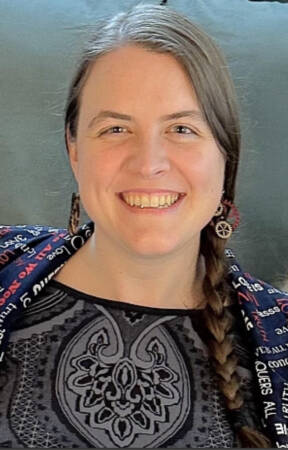Student Talks
Affective Robot Behavior Improves Learning in a Sorting Game
Abstract: Nonverbal communication in the field of education can allow teachers to emotionally support their students and improve educational experience and performance. Robot nonverbal movements have been shown to improve both subjective experiences and task performance, and this work investigates whether affective robot behavior can improve human learning. This is tested using an online sorting [...]
Policy Decomposition: Approximate Optimal Control with Suboptimality Estimates
Abstract: Optimal Control is a formulation for designing controllers for dynamical systems by posing it as an optimization problem, whereby the desired long-term behavior of the system is expressed using a cost function. The objective is to compute a policy, i.e. a mapping from the state of the system to its control inputs, that minimizes [...]
Audience-Aware Legibility for Social Navigation
Abstract: Robots often need to communicate their goals to humans when navigating in a shared space to assist observers in anticipating the robot’s future actions. These human observers are often scattered throughout the environment, and each observer only has a partial view of the robot and its movements. A path that non-verbally communicates with multiple [...]
On Sample-Efficient Reinforcement Learning for Nuclear Fusion
Abstract: In many practical applications of reinforcement learning (RL), it is expensive to observe state transitions from the environment. For example, in the problem of plasma control for nuclear fusion, determining the next state for a given state-action pair requires querying an expensive transition function which can lead to many hours of computer simulation or [...]
Learning Strategies to Solve Real-World Physics Puzzles
Abstract: In this talk, I focus on efficient online learning for solving real-world physics puzzles. I discuss challenges associated with learning in this domain and how those challenges inform certain design decisions. In particular, learning from scratch in the real world would be difficult. I present a practical mixture of experts framework for learning strategies [...]
Carnegie Mellon University
Towards Modular and Differentiable Autonomous Driving
Abstract: The classical "modular and cascaded" autonomy stack (object detection, tracking, trajectory prediction, then planning and control) has been widely used for interactive autonomous systems such as self-driving cars due to its interpretability and fast development cycle. In this thesis, we advocate the use of such a modular stack but improve its accuracy and robustness [...]
Carnegie Mellon University
Towards reconstructing non-rigidity from single camera
Abstract: In this proposal, we study how to infer 3D from images captured by a single camera, without assuming the target scenes / objects being static. The non-static setting makes our problem ill-posed and challenging to solve, but is vital in practical applications where target-of-interest is non-static. To solve ill-posed problems, the current trend in [...]
Carnegie Mellon University
Control Input and Natural Gaze for Goal Prediction in Shared Control
Abstract: Teleoperated systems are used widely in deployed robots today, for such tasks as space exploration, disaster recovery, or assisted manipulation. However, teleoperated systems are difficult to control, especially when performing high-dimensional, contact-rich tasks like manipulation. One approach to ease teleoperated manipulation is shared control; this strategy combines the user's direct control input with an [...]
Forecasting from LiDAR via Future Object Detection
Abstract: Object detection and forecasting are fundamental components of embodied perception. These two problems, however, are largely studied in isolation by the community. In this paper, we propose an end-to-end approach for detection and motion forecasting based on raw sensor measurement as opposed to ground truth tracks. Instead of predicting the current frame locations and [...]
Efficient 3D Representations: Algebraic Surfaces for Differentiable Rendering
Abstract: In this proposal, we show how some classic computer vision tasks can robustly be solved via optimization techniques by using an object representation that is compact and interpretable. Specifically, we explore the applications and benefits of representing 3D objects with an analytical, algebraic function by building an approximate, ray-based differentiable renderer. Our approximate formulation [...]





